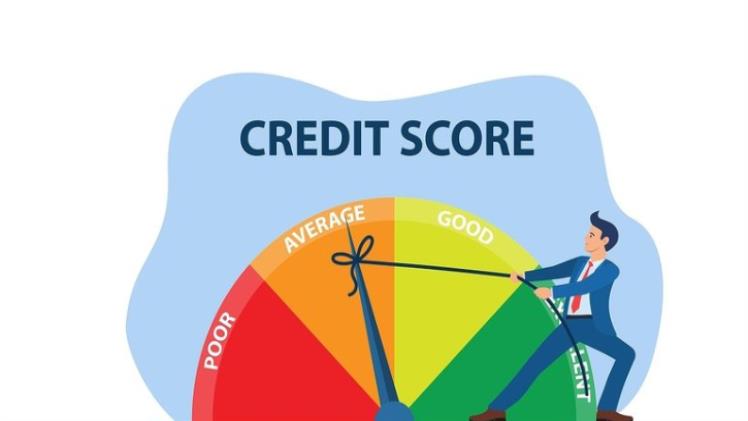In today’s world, where technology is advancing at lightning speed, it’s no surprise that artificial intelligence (AI) is revolutionizing various industries, including finance. One area where AI is making a significant impact is in credit scoring and risk assessment. Gone are the days of manual processes and subjective evaluations; AI is now taking the reins, offering faster, more accurate, and unbiased analyses of creditworthiness.
Understanding Credit Scoring
Before delving into the role of AI, let’s first understand what credit scoring entails. When you apply for a loan or credit card, lenders assess your creditworthiness to determine the risk of lending you money. Traditionally, this involved analyzing your credit history, income, debt-to-income ratio, and other financial factors. Based on this information, a credit score is assigned, indicating the likelihood of you repaying the borrowed funds.
Platforms like FintechZoom offers a wealth of information for individuals looking to understand the intricacies of credit scoring in today’s digital age.
The Evolution of Credit Scoring with AI
Enter artificial intelligence. With its ability to process vast amounts of data and identify complex patterns, AI has transformed the credit scoring landscape. Instead of relying solely on static criteria, AI algorithms can analyze a broader range of data points, including non-traditional sources such as social media activity, online shopping behavior, and even smartphone usage patterns.
Machine Learning Algorithms: The Power Behind AI in Credit Scoring
At the heart of AI-driven credit scoring are machine learning algorithms. These algorithms learn from historical data to make predictions about future outcomes, such as whether a borrower is likely to default on a loan. By continuously refining their models based on new information, machine learning algorithms can adapt to changing economic conditions and borrower behaviors, improving accuracy over time.
Benefits of AI in Credit Scoring
The adoption of AI in credit scoring offers several benefits for both lenders and borrowers. For lenders, AI-powered systems can streamline the lending process, reducing the time and resources required to assess creditworthiness. This efficiency translates into faster loan approvals and better customer experiences. Additionally, AI algorithms can identify patterns and trends that human analysts might overlook, leading to more accurate risk assessments.
For borrowers, AI-driven credit scoring can expand access to credit for underserved populations.
For borrowers, AI-driven credit scoring can expand access to credit for underserved populations. Traditional credit scoring models often overlook individuals with limited credit histories or unconventional financial profiles, such as freelancers or gig economy workers. By leveraging alternative data sources and advanced analytics, AI algorithms can provide a more comprehensive picture of an individual’s creditworthiness, potentially opening up new opportunities for those who would have otherwise been excluded.
Challenges and Concerns
While the benefits of AI in credit scoring are undeniable, it’s essential to acknowledge the challenges and concerns associated with its implementation. One primary concern is the potential for algorithmic bias. If AI models are trained on biased data or programmed with biased algorithms, they may perpetuate or even exacerbate existing disparities in lending, such as racial or gender discrimination. To address this issue, it’s crucial for developers to actively monitor and mitigate bias throughout the development and deployment of AI systems.
Transparency and Explainability
Another challenge is the lack of transparency and explainability in AI-driven credit scoring models. Unlike traditional credit scoring methods, which are relatively transparent and easy to understand, AI algorithms can be highly complex and opaque. This lack of transparency raises questions about accountability and consumer trust. Borrowers have the right to know how their creditworthiness is being assessed and what factors are influencing the decision-making process. Therefore, efforts to increase transparency and explainability in AI models are essential to fostering trust and ensuring fair lending practices.
The Future of AI in Credit Scoring
Despite these challenges, the future of AI in credit scoring looks promising. As technology continues to evolve, we can expect to see even more sophisticated AI algorithms capable of providing even more accurate and insightful risk assessments. Additionally, advancements in privacy-preserving technologies, such as federated learning and differential privacy, can help address concerns about data privacy and security.
Conclusion
In conclusion, artificial intelligence is revolutionizing credit scoring and risk assessment, offering faster, more accurate, and more inclusive methods for evaluating creditworthiness. By leveraging advanced algorithms and alternative data sources, AI has the potential to expand access to credit for underserved populations while improving efficiency and accuracy for lenders. However, it’s essential to address challenges related to bias, transparency, and privacy to ensure that AI-driven credit scoring remains fair, ethical, and trustworthy. As technology continues to advance, AI will undoubtedly play an increasingly critical role in shaping the future of lending and finance.

